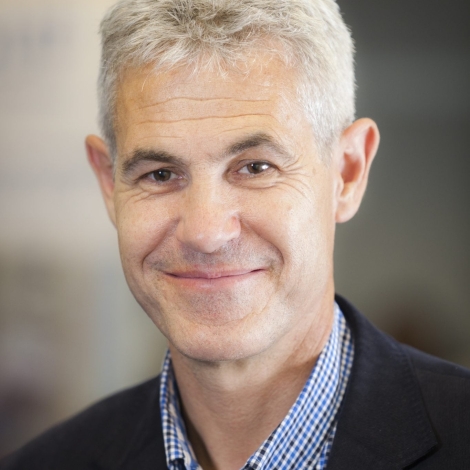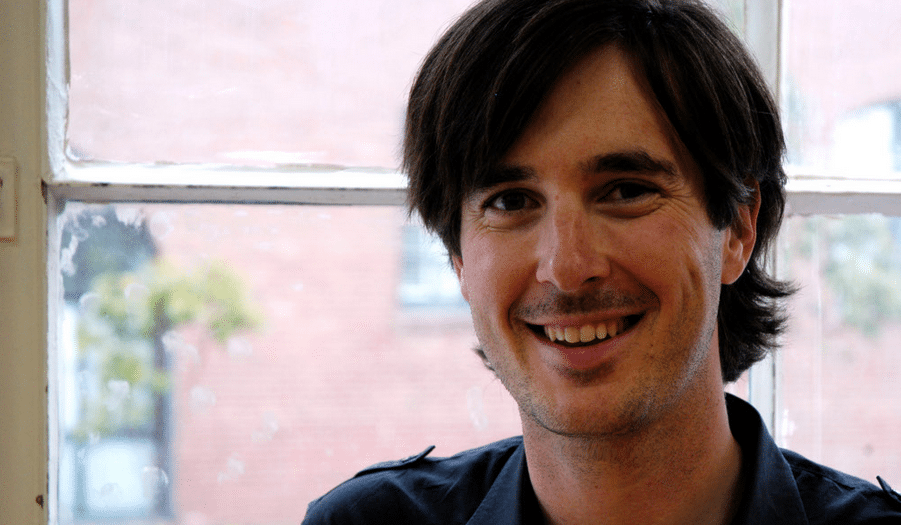Sam Parker has helped turn sanitation into a profitable business in developing countries. He’s now the director of the Shell Foundation, a position he took after nearly a decade at the helm of Water & Sanitation for the Urban Poor, a hybrid of private companies and NGOs. WSUP has helped to develop sanitation businesses in Bangladesh, Ghana, Kenya, Madagascar, Mozambique and Zambia.
Parker’s resume starts on a trajectory toward success in business with a degree from Oxford University and six years in the agrochemical industry, then it takes a sharp detour for two years while he lived and worked in a safehouse for street kids in Sao Paulo, Brazil. Afterwards, he headed back into business and the trading industry for 11 years before taking the helm at WSUP. We asked him five questions.
E4C: What is one of the stories you tell from your time living in a safehouse for street kids in Brazil?
SP: I was working for a large agrochemical business and I was on business in Brazil. A friend of mine had a friend who ran a safehouse. I had a free evening so I went over and found myself in a house with 35 street boys and the people running the house. It was, as you can imagine, a cultural contrast to the Ritz Carlton where I was staying. What impressed me was that the work at the house was so full of value and purpose that it seemed to me to be highly worthwhile, certainly compared to what I was doing. So I decided that I would go back and go to work there, for no better reason than that these people needed help and it seemed extremely effective at getting boys off the street and it was something that I wanted to do.
One quickly realizes that I learned a lot more than I taught. The boys made me laugh, and were fantastic. Really I saw a depth of courage and resilience.
One particular boy I remember, Ronaldo, when we found him on the street, he was sitting in the doorway of a church and he was sniffing glue, like most of the boys did. So he came back with us to the house. His legs were completely covered with sores. And it was like magic – fruit and vegetables, proper diet and he healed.
[quote]It’s not about technology, it’s about behavior.[/quote]
He went back to find his family and I remember meeting his family. The mother was a very overbearing person and the father drank heavily, which is what drove him onto the streets. And so we met them and they were not particularly welcoming to Ronaldo. They seemed to be quite disappointed that he had come back. I remember giving him the choice of staying or coming back with us where he knew he’d have decent food and he’d get schooling and he had his friends and lots of good care. And he chose to stay with his family.
The bonds of the family are incredibly strong. It doesn’t take much for a child to want to go back. It reinforces the fact that really the parents are the ones that kids need. It was a lesson to me in not making assumptions about what boys in that kind of situation might actually want or need.
E4C: Well, that was fascinating, thank you. Switching tracks, if you don’t mind, what is one of the promising trends in sanitation and hygiene services worldwide?
SP: The most promising trend really is the global attention that sanitation is getting today that it didn’t get 10 years ago. The Gates Foundation and others have really cast a spotlight on it. People are now taking it seriously and investing in it. But there’s a long way to go.
Another important trend is that people are recognizing that the field is not simply for engineering and infrastructure industries. Therefore the trend is towards more market-based strategies, where a lot of attention is on what people want, what they need, what they’ll pay for and how to deliver a service. Previously, that wasn’t really widely understood or even worked on. You need to work out what drives people and what makes them behave in a certain way. I think it’s a burgeoning area of interest.
[quote]The trend is towards more market-based strategies, where a lot of attention is on what people want, what they need, what they’ll pay for and how to deliver a service.[/quote]
E4C: What is a common mistake that sanitation service providers make, and how can they correct it?
SP: Service providers believe that it’s about selection of technology, whereas the reality is it’s primarily about behavior. All of the efforts on finding new technology are important and interesting, but everything starts with people wishing to improve their own sanitation.
Whereas in water, pretty much everybody that wants to buy water can buy water, that’s not the case in sanitation. You have to raise it as a priority in people’s minds. It may be that it’s still below purchase of alcohol or clothes or school fees or trips or other things that people use their money for. It may be that people prioritize that over and above hygienic toilets.
The biggest source of finance for increased sanitation worldwide are people paying for it themselves, saying, “Yes, I’m going to spend $1 or $3 per month on sanitation because I want to,” or “I’m going to buy a better toilet because I want to.”
Once you’ve got demand, strong demand, it’s a whole lot easier to build systems that work. Without people wanting better technology in the first place you can design all of it that you want but people are not going to buy it. I would say that’s the biggest mistake, that it’s not about technology, it’s about behavior.
E4C: So, even though it’s not about the technology, do you think that a good design can help change behavior and entice people to invest in sanitation?
SP: Definitely. Any technology that can bring the cost down and make the service viable is going to be important. If you’ve got no technology and an unattractive service then you’re going to get high costs in the system. Rather than making something that people don’t talk about or are embarrassed by, or that they believe is taboo, you’re actually making an aspirational product and service. People are proud about it or people want it because it serves a certain quality of life. If you can associate a better toilet or a better sanitation service with a better quality of life, and people can buy into that idea, then you’re onto something really powerful. Design is a big part of that.
To influence behavior, you need to understand what people think, and what are their attitudes and values. What most people do is undergo a process of formative research. What would trigger a behavior change? If you want, for example, to convince people to invest in improving their sanitation, you’d need to really get at what would make them do that. Is it a desire for better health? A desire for more status? A desire for better privacy or dignity, or what is it that actually drives that? And very rarely is it about health. A much stronger drive is things like privacy, status, pride. What are the things that actually make your behavior change? It’s spending enough time at that place to work out how to market something [to the people who live there].
[quote]Producing something of value from waste, that is the biggest prize.[/quote]
E4C: Is there a new sanitation technology or trend in design that you think could become a game changer?
SP: Clean Team Ghana is an enterprise that we helped to launch. Most of the world relies on pit latrines, which in towns are not very healthy or sustainable. The Clean Team business model is a portable toilet that is free and you pay for service to have it emptied twice a week. The toilet is smart, well looked after and it also generates local business.
In terms of new technology, whoever invents a modular processor that can digest sewage from pit latrines and convert it to some usable material, such as energy, compost or heat, will become famous in sanitation because that’s the biggest piece that’s missing in the industry.
Everything starts with behavior change, but following that, we do need better technology. Producing something of value from waste, that is the biggest prize.

